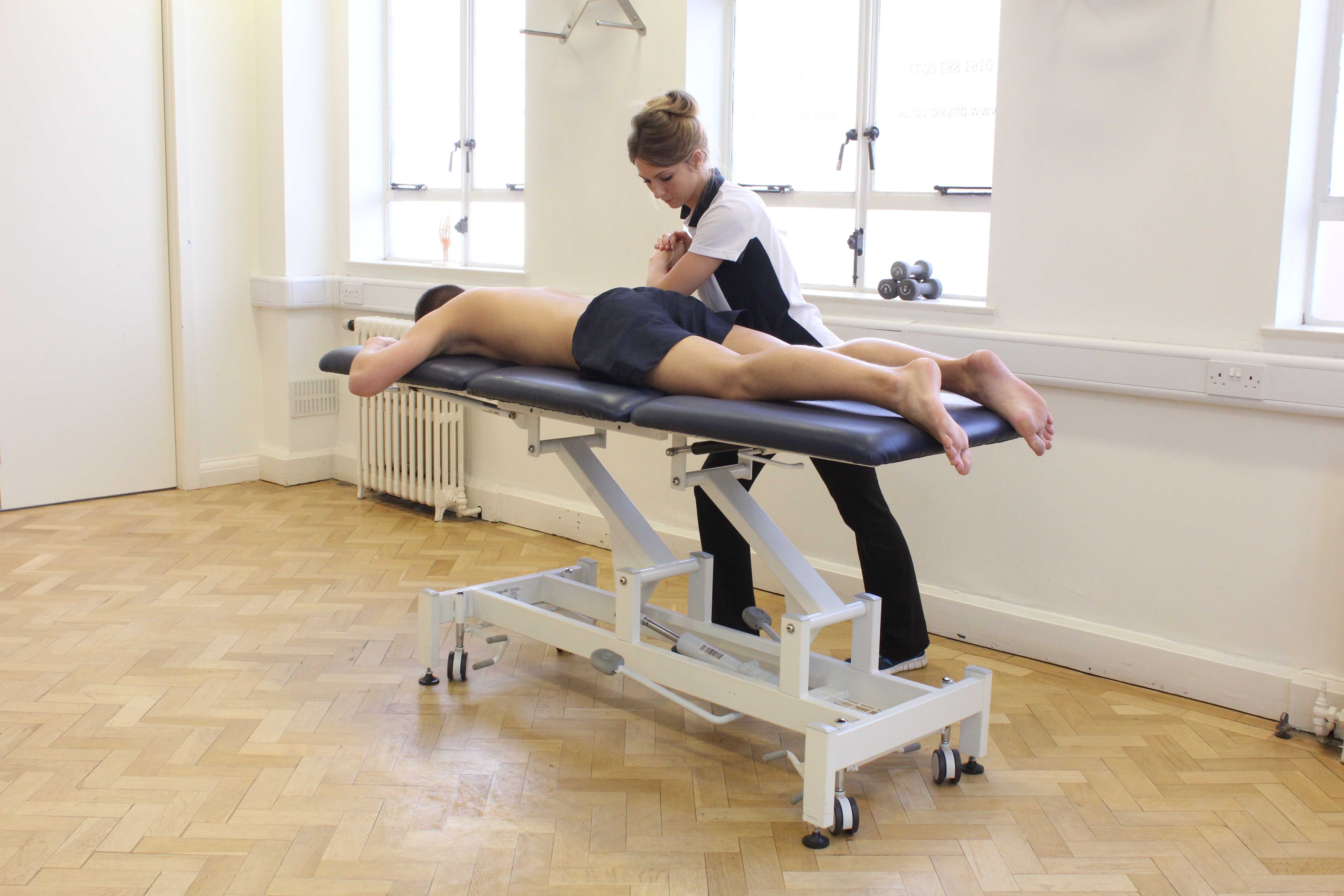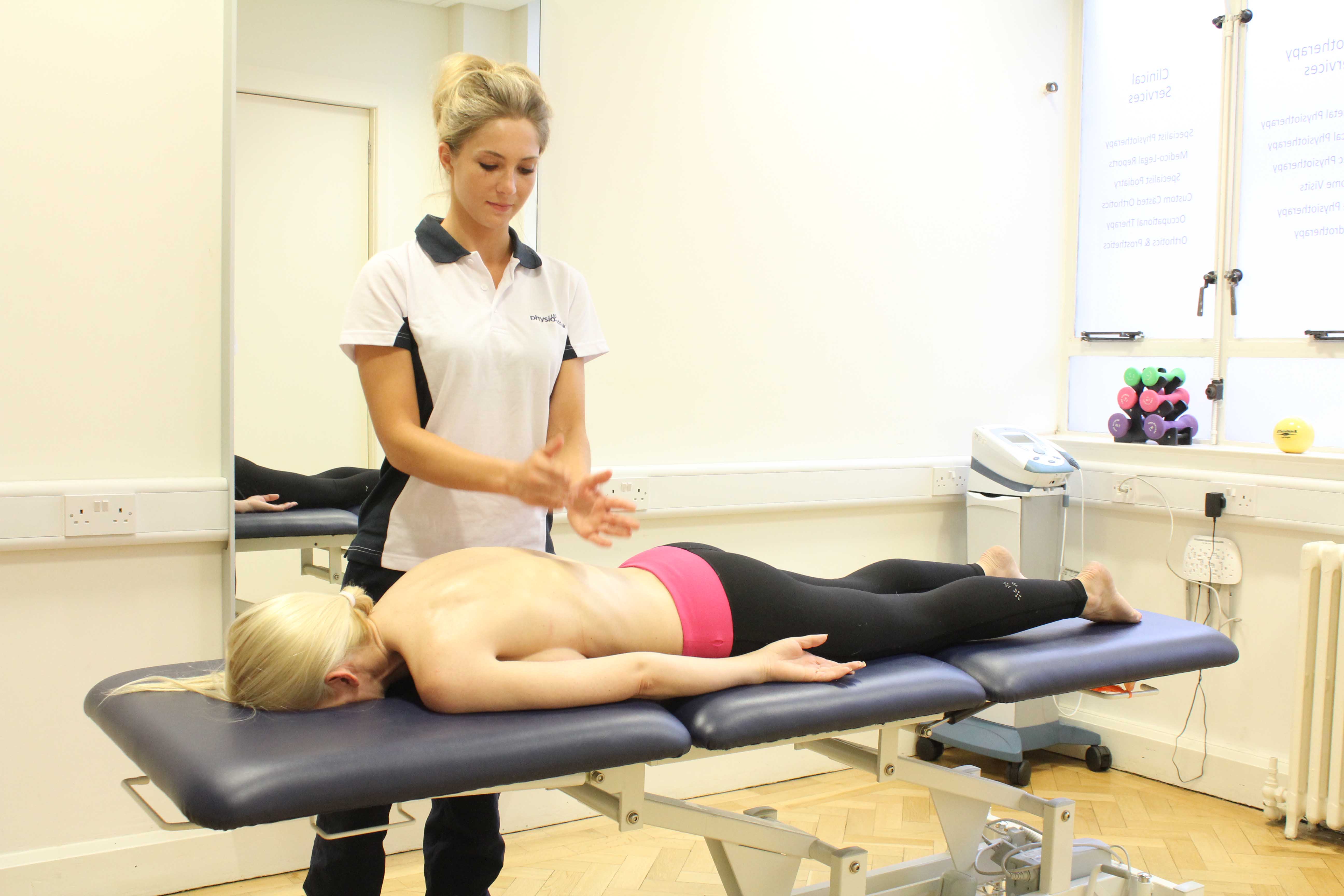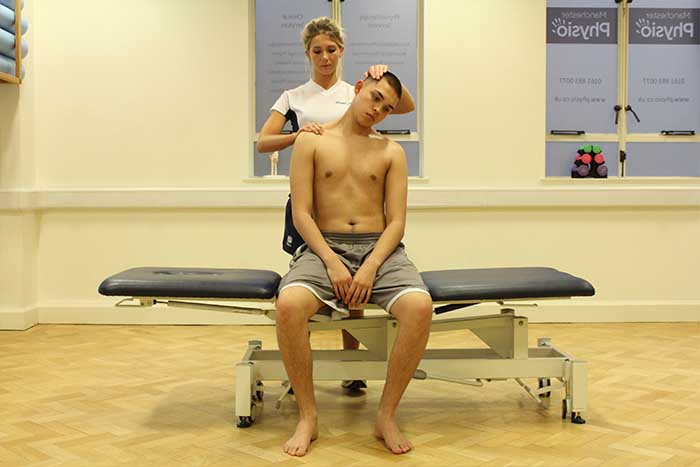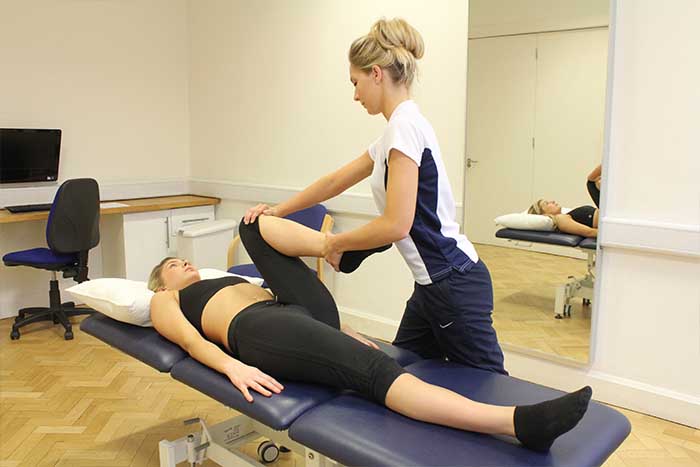Increased vasodilation is a benefit commonly gained through a sports massage. Vasodilation is the process in which an increase in blood is enabled to travel through blood vessels as they widen and come closer to the skin surface. Various techniques are used within a massage, aiming to increase vasodilation. Increased vasodilation can increase relaxation, decrease pain and prepare a person for exercise or competition. Our massage therapists at Physio.co.uk use massage to improve circulation and speed up recovery.
What is increased vasodilation?
Vasodilation is where blood vessels widen and come closer to the surface of the skin. Blood vessels dilate as smooth muscles lining the vessels relax. Vasodilation reduces restriction of blood flow through vessels, decreasing blood pressure and increasing blood circulation. A sign of vasodilation a person may get is a pinking effect on the skin, which shows a localised increase of blood flow to the area. Vasodilation increases blood flow, reduces swelling and also helps with the regulation of body temperature. A variety of techniques can be used to encourage vasodilation during a massage. A massage promotes the release of histamine. Histamine acts as a neurotransmitter that increases the permeability of blood vessels. Increasing the permeability of blood vessels results in vasodilation.
 Above: Deep tissue massage can help with lymphatic drainage and the removal of circulatory waste products
Above: Deep tissue massage can help with lymphatic drainage and the removal of circulatory waste productsWhat are the benefits of increased vasodilation?
Increased vasodilation can benefit a person in many different ways. Common benefits of increased vasodilation include:
 Above: Hacking percusion massage increases circulation to the targeted area
Above: Hacking percusion massage increases circulation to the targeted areaIncreased vasodilation can help improve recovery. After injury or surgery, a build-up of metabolic wastes and excess fluids occurs around the area. A build-up of metabolic wastes and excess fluids can slow down recovery, increase swelling and increase pain. Increasing vasodilation results in an increase in blood flow around the body. Increasing blood flow helps to carry metabolic wastes and excess fluids away from the injury site and out through different nodes and glands within the body. When metabolic wastes and excess fluids have been removed, the increased blood flow provides the injured area with an increase of oxygen and nutrients that help repair muscles, maintain their health and speed up recovery time.
The maintenance of healthy muscles is a common benefit of increased vasodilation. Vasodilation increases blood circulation around the body. Within the blood flow are essential oxygen and nutrients needed to keep muscles strong and healthy. When vasodilation occurs and blood circulation is increased, this results in an increased amount of essential products being transported to all muscles. An increase in essential products prevents muscles from weakening and becoming damaged therefore maintaining their health and strength.
Increased vasodilation improves circulation. During a massage, when the blood vessels dilate, the area blood has to travel through increases. Blood pressure is also reduced as vessels dilate. Reducing blood pressure and increasing the space blood has to travel through, improves circulation as more blood is able to travel around the body at a faster rate.

What techniques are used to increase vasodilation?
A variety of techniques can be used to increase vasodilation. The most common techniques used include:
Deep strokes can be used to increase vasodilation. Deep strokes are performed using flattened hands and fingers and involve using a firm pressure to get deeper in muscles. Deep strokes help to increase vasodilation by encouraging the release of the neurotransmitter histamine. Histamine increases the absorbency of vessels, relaxing muscles cells lining the vessels. Increasing absorbency and relaxing the muscle cells lining the vessels results in vasodilation.
Vasodilation can be increased using myofascial release. Myofascial release is a technique performed using flat hands and fingers. The flattened hands and fingers are placed on a person and gentle pressure is applied. As the pressure is applied the temperature of fascia increases allowing the hands to move around the area and spread out the fascia. As temperature of fascia continues to increase, the pressure applied from the hands also increases enabling them to get deeper into the fascia. Myofascial release helps to reduce restriction caused by fascia and also increases blood flow as temperature is increased. Increasing blood flow means an increase in vasodilation has occurred.
Kneading can increase vasodilation. Kneading is performed in circular movements. Kneading is where soft tissues are slowly pulled away from the bone and then brought back to the bone in a squeezing action. Connective tissues are stretched and loosened during kneading aiding in the reduction of muscle tightness and pain. Kneading is also used to increase the temperature of a muscle and so, increase vasodilation to allow this to occur. Using kneading to increase vasodilation can help decrease muscle tightness, improve tissue elasticity and increase flexibility.
Wringing is a common technique used to increase vasodilation. Wringing is a technique where soft tissues are pulled from the outside of an area of the body towards the centre in opposite directions. Wringing helps to lift up tissues to decrease restriction and reduce tension. Much like kneading, wringing also helps increase vasodilation to allow a rise in muscle temperature. Using wringing to increase vasodilation helps to decrease tension, increase range of movement and increase blood flow.

What situation would increased vasodilation help?
Increased vasodilation can help in many situations. Situations increased vasodilation can help include:
Increased vasodilation can help a person post injury. Post injury can leave negative effects on a person's body. Muscles tend to be tight and restrictive, increasing pain and discomfort. Increasing vasodilation encourages an increase in blood flow to be delivered to the injury site. Within the blood flow are essential nutrients and oxygen used for the repair of damaged cells and tissues. Increasing vasodilation further increases the amount of blood able to reach the injury site. Increasing blood flow provides the damaged muscles, cells and tissues with more essential nutrients and oxygen to help speed up recovery.
Increased vasodilation can help a person prepare for exercise or competition. When vasodilation occurs, an increase in blood flow is encouraged around the muscles. Blood flow contains oxygen and nutrients that can provide muscles with an increase in energy. Increasing blood flow around the muscles also helps them to loosen and decrease in restriction allowing a wider range of movement. Increasing muscle energy and range of movement helps to prepare a person for activity as it helps to reduce fatigue and the chances of injury.
Tight muscles can be helped by increasing vasodilation. When muscle tightness is left untreated, it can cause pain and restriction. Increasing vasodilation results in an increase in circulation around the body. Increasing circulation rises muscle temperature. When the temperature of muscles rises, their elasticity and flexibility is improved. Improving muscle elasticity and flexibility reduces muscle tightness and pain.
Summary
Vasodilation is the dilation of blood vessels within the body. Vasodilation increases blood flow around the body which gives a pinking effect on the skin. Increasing vasodilation can benefit a person in many ways including improved recovery, the maintenance of healthy muscles and improved circulation. Deep strokes, frictions and myofascial release are techniques used to increase vasodilation and help treat post injury, pre event and tight muscles. Our massage therapists at Physio.co.uk use massage to increase vasodilation to help relieve pain and maintain healthy muscles.
How can I arrange a sports massage to increase vasodilation?
The easiest way to arrange a sports massage to increase vasodilation at Physio.co.uk is to email us at office@physio.co.uk or call us on 0800 033 7800.
Alternatively if you have any questions please feel free to contact us.
We offer a 7 day service and provide home and clinic appointments.

 0330 088 7800
0330 088 7800



































